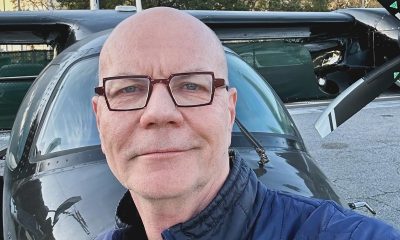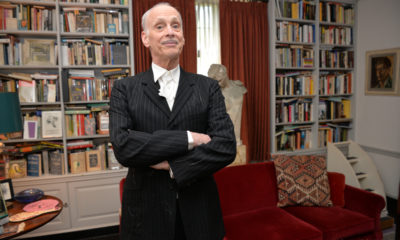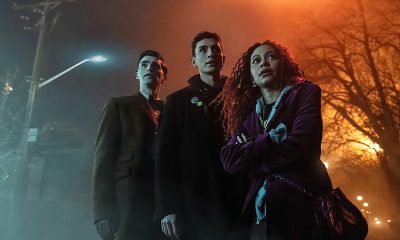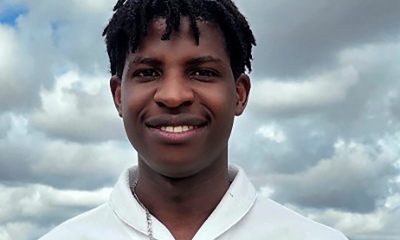Arts & Entertainment
Music of the season
Gay productions among upcoming holiday concerts and shows
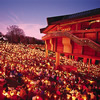
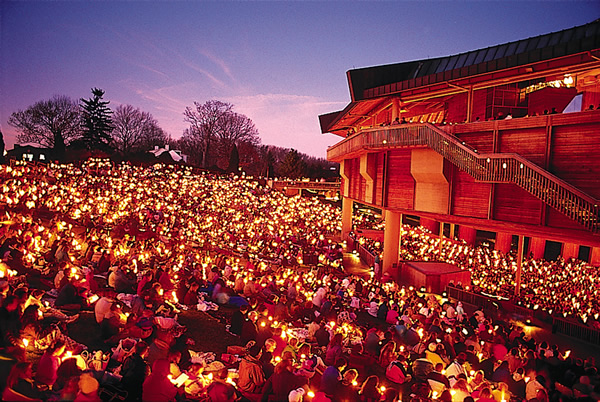
Wolf Trap’s Holiday Sing-A-Long, featuring the U.S. Marine band and members of local choirs and vocal groups is Dec. 4. (Photo by Sam Kittner, courtesy Wolf Trap)
The holiday season has officially begun with Thanksgiving over and it’s time for holiday concerts and shows. Washington and the region have a rich bounty slated — you could go to concerts almost every night between now and Christmas and still not see everything.
The Gay Men’s Chorus of Washington has its annual holiday concert, “Red & Greene,” for four performances from Dec. 16-18 at Lisner Auditorium (730 21st St., N.W.) featuring Ellen Greene, Broadway’s original Audrey from “Little Shop of Horrors.” Tickets range from $25 to $50 and can be purchased at gmcw.org.
The Gay Men’s Chorus will also be joining Metropolitan Community Church of Washington for its “Joy All Over the World” Christmas concert at Lincoln Theater on Dec. 3. Oleta Adams will make a special appearance. Orchestra seats are $30; balcony seats are $20. This is lesbian music minister Shirli Hughes’ swan song with the church. Go to mccdc.com for more information or ticketmaster.com for tickets.
Wolf Trap (1645 Trap Rd.) in Vienna has two holiday shows coming up. Starting Wednesday is Steve Solomon’s “My Mother’s Italian, My Father’s Jewish & I’m Home for the Holidays.” Solomon uses impersonations to tell the story of a family reunion in his one-man show, the longest running one-man show in Broadway history. The show runs through Dec. 2. Tickets are $32 and can be purchased online at wolftrap.org.
Dec. 4 brings Wolf Trap’s free annual holiday sing-a-long featuring Christmas carols and Hanukkah songs by choir and vocal groups and the United States Marine Band.
The Kennedy Center (2700 F St., N.W.) has a bevy of different holiday performances and events coming up in December.
The American Ballet Theatre will be performing “The Nutcracker” from Dec. 8-11 featuring the Kennedy Center Opera House Orchestra, the Norwood Middle School Choir and the National Cathedral School Choir. Tickets range from $45 to $150.
The National Symphony Orchestra, conducted by Matthew Halls, will be performing Handel’s “Messiah” starting Dec. 15. The show will run through Dec. 18 and tickets range from $20 to $85.
Before the Orchestra’s performance, the Kennedy Center will have Yvonne Caruthers give a comprehensive history of “Messiah” performances throughout the years in “Searching for the Real Messiah” on Dec. 10 at 2 p.m. Tickets are $15.
Tickets for all Kennedy Center performances can be purchased online at kennedy-center.org.
The Cantate Chamber Singers will be giving their “Holiday in Venice” concert on Dec, 11 at St. Mark Episcopal Church (118 3rd St., S.E.) at 3 p.m.
If too much “Messiah”/”Nutcracker”-type traditionalism has you reaching for the eggnog, there are some less reverential offerings as well.
Gay filmmaker John Waters brings his eponymous Christmas show to the Birchmere on Dec. 18. Tickets are $45 at birchmere.com.
And the Kinsey Sicks, a “dragapella” beauty-shop quartet, are back in D.C. with their show “Oy Vey in a Manger” at Theater J (1529 16th St., N.W.) for four performances from Dec. 24-26. Tickets range from $25 to $65 and can be purchased online at theaterj.org.
The Bohemian Caverns Jazz Orchestra will be performing its holiday concert, “A Bohemian Christmas,” featuring holiday favorites re-imagined with a jazz bent, at The Mansion at Strathmore (10701 Rockville Pike) in North Bethesda on Dec. 18 at 5:30 and 7:30 p.m. Tickets are $20.
Grammy Award nominee Dave Koz, who’s gay, is coming to the Music Center at Strathmore (5301 Tuckerman Lane) in North Bethesda on Dec. 5 for his Christmas tour with special guests Rick Braun, Jonathan Butler and Candy Dulfer. The concert will feature songs from Koz’s holiday albums. The concert begins at 8 p.m. and tickets range from $38 to $72.
The Baltimore Symphony Orchestra will be performing “Holiday Cirque de la Symphonie” on Dec. 8 at the Music Center at 8 p.m. The concert will be performed on and above the stage.
The orchestra will also perform Handel’s “Messiah” on Dec. 3 at 8 p.m. featuring Edward Polochick and concert artists of Baltimore Symphonic Chorale.
Tickets for both Orchestra performances range from $28 to $88.
The National Philharmonic will also be performing Handel’s “Messiah” with two performances on Dec. 10 and 11 featuring Stan Engebretson conducting. Kids from 7 to 17 can attend this concert for free. Tickets range from $32 to $79. There will also be a free lecture before the concert on Dec. 10.
On Dec. 12, Pink Martini (featuring Thomas Lauderdale, who’s openly gay) will be performing at the Music Center at 8 p.m. Tickets range from $55 to $125 and can be purchased online at ticketmaster.com. All Strathmore tickets can be purchased online at Strathmore.org unless otherwise noted.
The BlackRock Center for the Arts (12901 Town Commons Drive) in Germantown will have the “Lift Every Voice: A Holiday Gospel Celebration” concert on Dec.3 at 8 p.m. featuring vocal performances by Solomon Howard, EXTOL and Nischka Higginbotham. Tickets are $25 and can be purchased online at blackrockcenter.org.
The Olney Theater (2001 Olney-Sandy Spring Rd.) has two holiday shows coming up in December. First up is “The Nutcracker” starting Dec. 9 and running through Dec. 24. This is the Olney Ballet Theatre’s 50th anniversary production of the show. And starting Dec. 14, Paul Morella returns to Olney with his performance of “A Christmas Carol: A Ghost Story of Christmas.” Tickets for all shows at Olney start at $26 and can be purchased by calling the box office at 301-924-3400.
The Christ Church Episcopal (118 N. Washington St.) in Alexandria has “A Festival of Nine Lessons and Carols” on Dec. 4 at 5 p.m. The traditional service will feature hymns and anthems, including music by gay composters Joel Martinson, Richard Webster and David Ashley White. This is a free event, but an offering will be taken to benefit the music program at Mount Vernon Woods Elementary School. A wine-and-cheese reception will follow the performance.
D.C. Different Drummers’ holiday concert is Dec. 11 at the Columbia Heights Education Campus Auditorium (3101 16th St., N.W.) at 3 p.m. The performance will include music from D.C. Swing!, the Capitol Pride Symphonic Band and several of the groups small ensembles, almost all of whom are LGBT. Tickets to the concert are $21 for adults and $11 for students and seniors and can be purchased online at dcdd.org.
Books
‘Mean Boys’ raises questions of life, death, and belonging
New memoir wanders but enjoy the whiplash
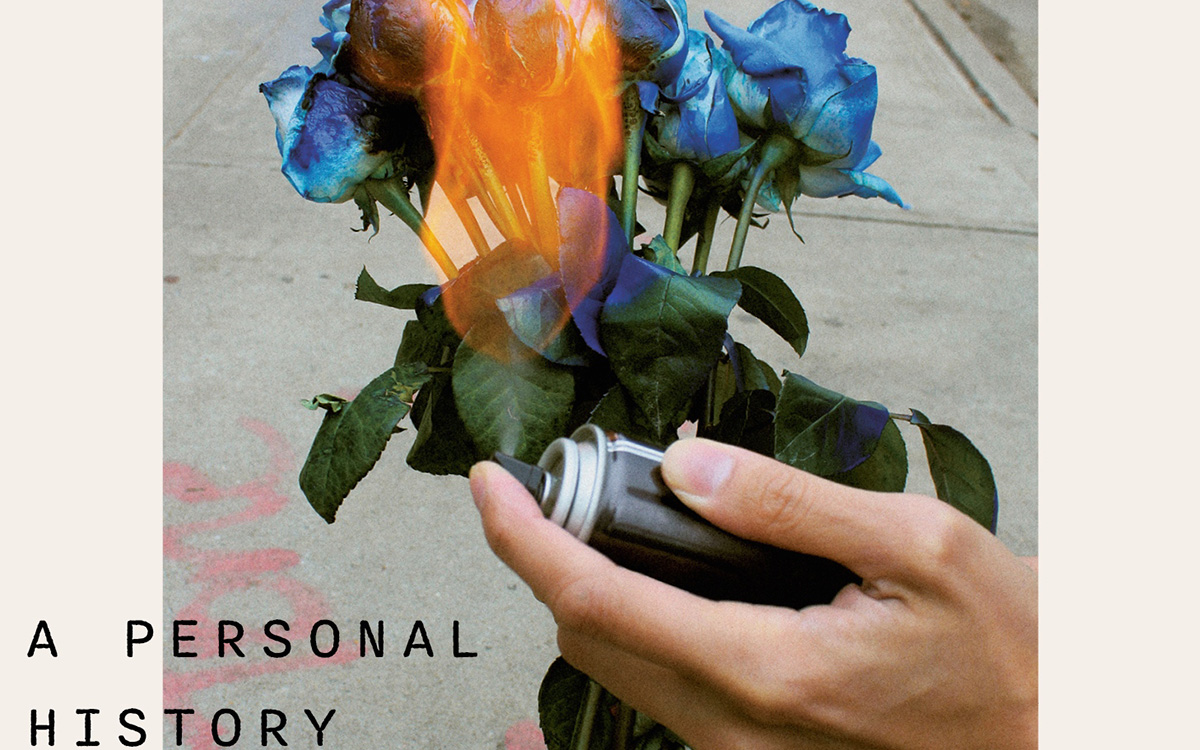
‘Mean Boys: A Personal History’
By Geoffrey Mak
c.2024, Bloomsbury
$28.99/267 pages
It’s how a pleasant conversation is fed, with give and take, back and forth, wandering casually and naturally, a bit of one subject easing into the next with no preamble. It’s communication you can enjoy, like what you’ll find inside “Mean Boys” by Geoffrey Mak.

Sometimes, a conversation ends up exactly where it started.
Take, for instance, Shakespeare’s “King Lear,” which leads Mak to think about his life and his inability to “cull the appropriate narratives out of nonsense.” Part of that problem, he says, was that his living arrangements weren’t consistent. He sometimes “never really knew where I was living,” whether it was Berlin or California, in a studio or high-end accommodations. The parties, the jokes, the internet consumption were as varied as the homes and sometimes, “it didn’t really matter.” Sometimes, you have to accept things and just “move on.”
When he was 12 years old, Mak’s father left his corporate job, saying that he was “called by God” to become a minister. It created a lot of resentment for Mak, for the lack of respect his father got, and because his parents were “passionately anti-gay.” He moved as far away from home as he could, and he blocked all communication with his parents for years, until he realized that “By hating my father, I ended up hating myself, too.”
And then there was club life which, in Mak’s descriptions, doesn’t sound much different in Berghain (Germany) as it is in New York. He says he “threw myself into night life,” in New York Houses, in places that gave “a skinny Chinese kid from the suburbs… rules I still live by,” on random dance floors, and in Pornceptual. Eventually this, drugs, work, politics, pandemic, basically everything and life in general led to a mental crisis, and Mak sought help.
“I don’t know why I’m telling you all this,” Mak says at one point. “Sometimes life was bad, and sometimes it wasn’t, and sometimes it just was.”
Though there are times when this book feels like having a heart-to-heart with an interesting new acquaintance, “Mean Boys” can make you squirm. For sure, it’s not a beach read or something you’ll breeze through in a weekend.
No, author Geoffrey Mak jumps from one random topic to another with enough frequency to make you pay close to attention to his words, lest you miss something. That won’t leave you whiplashed; instead, you’re pulled into the often-dissipated melee just enough to feel almost involved with it – but with a distinct sense that you’re being held at arms’ length, too. That some stories have no definitive timeline or geographical stamp – making it hard to find solid ground – also adds to the slight loss of equilibrium here, like walking on slippery river rocks.
Surprisingly, that’s not entirely unpleasant but readers will want to know that the ending in “Mean Boys” could leave their heads swirling with a dozen thoughts on life, belonging, and death. If you like depth in your memoirs, you’ll like that — and this.
The Blade may receive commissions from qualifying purchases made via this post.
Digital Media
‘Our Queer Life’ chronicles diversity of the LGBTQ experience
Series fosters understanding and empathy among viewers
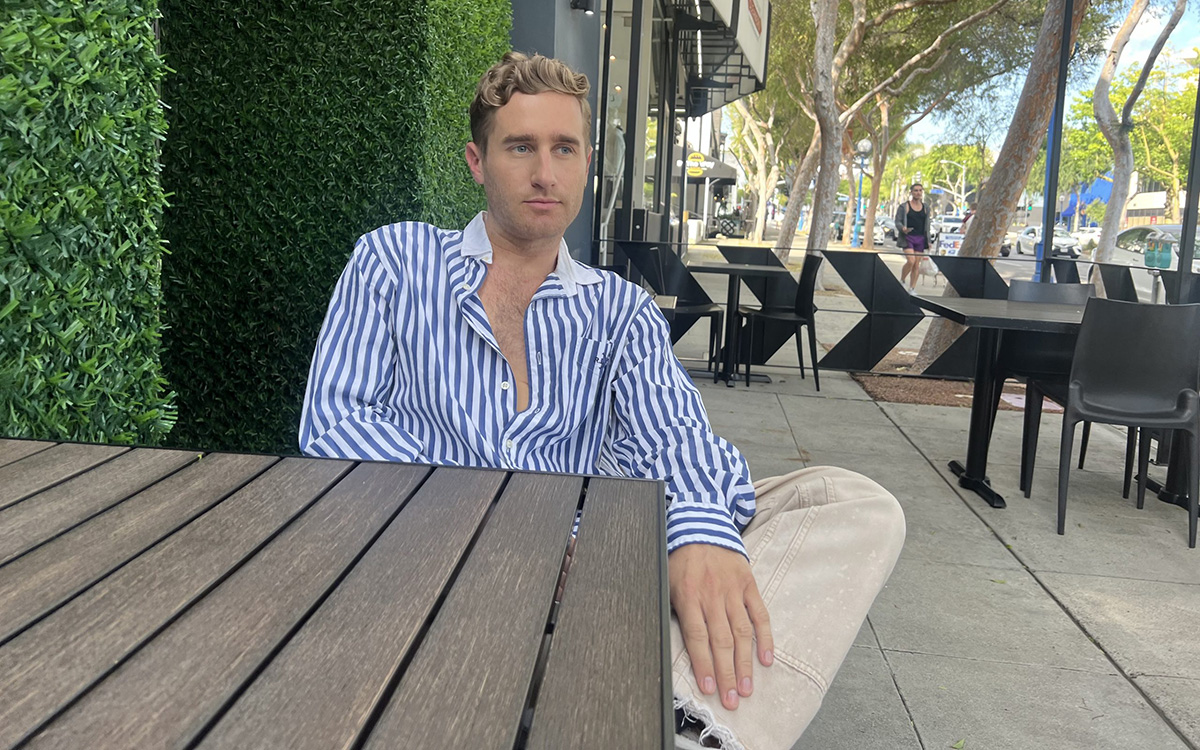
WEST HOLLYWOOD – In the bustling lanes of digital storytelling, where narratives burst and fade with rapid clicks, Matt Cullen’s documentary series “Our Queer Life” emerges as a poignant chronicle of the LGBTQ+ community’s diverse experiences.
With 200,000 subscribers on YouTube, Cullen’s series stands out not just for its breadth of voices—from celebrities to street hustlers—but for the depth with which it explores the moving lived realities of queer individuals.
Cullen took time out of his busy schedule to give The Blade an exclusive interview about his fledgling hit series.
Born and raised in Northern California, Cullen’s early life in a supportive, albeit traditional, family environment shaped his sensitive approach towards storytelling. A curious and open child who loved musical theatre, Cullen always had a passion for interesting stories and how they are told.
Cullen worried about coming out to his family, but said that he is eternally grateful that the nerve-wracking experience involving a letter left on the kitchen table for his parents to find, fortunately ended in acceptance and love, with his parents ultimately embracing his truth warmly.
“It was a scary big step,” Cullen reflected. “Coming out to my family or my really close friends was scary because I was worried if they didn’t accept me, I would not know how to handle that… It was more about accepting myself and embracing who I was and saying, this is my life now. “
Cullen said that he knows that the familial support he received as a newly out high school senior contrasted sharply with the narratives of many he would later spotlight in his series, providing him with a profound appreciation for his own comparatively smoother journey.
“The stories that I tell are very heavy,” Cullen said. “But I still feel so inspired and motivated by the determination of these people to keep living and to keep going in spite of everything. Their drive and their willingness to live for themselves and nobody else leaves me invigorated and inspired.”
Cullen, who initially pursued acting after college in New York, found himself dissatisfied with the roles and scripts that came his way. “I felt like I was just regurgitating somebody else’s words,” he shared, highlighting his discomfort with being constantly typecast as over-the-top gay characters.
The turning point for Cullen came during the COVID-19 pandemic.. Trapped in his apartment, feeling isolated and longing for interaction, he envisioned a new creative outlet. “I felt like I needed to talk to new people,” Cullen said. “I was craving a deep connection with strangers, and I wanted to hear new stories. That deep desire was what the impetus for the series.”
The combination of Cullen’s artistic empathy mixed with his own feelings of entrapment led him to think about how difficult life must be for other queer individuals stuck in societal ecosystems that inherently reject their queerness.
“I thought about a lot of fundamentalist religious groups and how difficult it is for people to be gay there,” Cullen remarked, pinpointing the acute need for representation from these underrepresented groups.
Cullen’s first interview was with Rob, a man Cullen had found through a Facebook group and who had left the Jehovah’s Witness community to live authentically.
“I am still so grateful that Rob felt comfortable to be the first to share his story with me,” Cullen said.
Rob’s story provided a raw, unfiltered look at the challenges of adapting to the outside world after leaving a controlled religious environment. He discussed not only the doctrinal and social shackles he escaped but also the practical challenges of integrating into society, like finding employment without real-world skills.
This encounter didn’t just enrich Cullen’s series; it set a precedent for the type of stories he wanted to feature—stories of struggle, resilience, and the search for identity. Each episode aims to foster understanding and empathy among viewers, broadening their perspectives on the complexities of queer life in various contexts.
“Our Queer Life” thrives on its intimate portrayal of its subjects. Each episode delves into the hurdles and triumphs of individuals within the LGBTQ+ community, aiming to destigmatize topics like sex work and address the misrepresentation of trans people. Through his conversations, Cullen not only exposes the challenges faced by his subjects but also celebrates their resilience and humanity.
Mousie, who had lived through unimaginable challenges, from serving multiple prison terms to surviving on the streets of North Hollywood, became one of the earliest and most influential subjects of Cullen’s series. Her willingness to open up about her life provided “Our Queer Life” with a narrative that encapsulated the struggles and resilience of a marginalized individual fighting for survival and dignity.
During their first meeting, Mousie shared her journey with Cullen, detailing her life in a $67/month apartment and her experiences as an intravenous drug user and sex worker. This episode alone drew over 300,000 viewers, resonating deeply with audiences and humanizing a community often relegated to the shadows of society. Cullen revisited Mousie a year later, further exploring her day-to-day experiences and struggles, adding layers to her story that emphasized her humanity over her hardships.
Mousie’s influence extended beyond the screen; her relationship with Cullen grew into a deep, familial bond. In her final days, confined to a hospital bed, she expressed her heartfelt connection to Cullen, telling him, “I was her brother and that we had great things to do together.” Her passing was a profound loss for Cullen, who felt her spirit continued to guide his work, inspiring him to pursue stories with even greater dedication.
Reflecting on Mousie’s role in shaping “Our Queer Life,” Cullen credits her with helping him gain the credibility and trust necessary to navigate the complex landscapes of street life and sex work. “Mousie was the one who broke this for me,” Cullen remarked, acknowledging how a TikTok video of her story garnered 30,000 views and messages from viewers expressing how deeply they related to her experiences. This response marked a turning point for the series, illustrating the power of storytelling in building connections and fostering understanding.
“I feel like she is still with me in everything that I do,” Cullen said. “She told me before she died that I was her brother…I can literally feel her.”
As “Our Queer Life” continues to grow, so does its creator. Cullen remains hands-on, involved in every aspect of production from filming to editing, driven by a personal touch that resonates deeply with his audience. While he contemplates the future of the series, possibly on larger platforms like Max, his priority remains the authentic representation of his subjects’ lives.
“I will always refuse to do anything exploitative where we don’t ask about (the subject’s) lives and their desires,” Cullen said, underscoring his commitment to creating real and nonexploitative narratives. “I want every person who clicks on a video to leave that episode feeling a connection and relating to them.”
The series is quickly becoming a vital part of the cultural conversation, reaching people across the globe and fostering understanding and empathy among its viewers. For many, it provides the first intimate look at lives they might otherwise never encounter, bridging gaps and building connections.
In a world where divisions run deep, Matt Cullen’s “Our Queer Life” offers a beacon of unity, celebrating the shared human experiences of love, struggle, and resilience. Through his lens, viewers are reminded that despite our vast differences, the desires for acceptance, health, and happiness are universal.
Out & About
Film festival to highlight Polish trans woman’s story
‘Kobieta Z’ screening at Landmark E Street Cinema
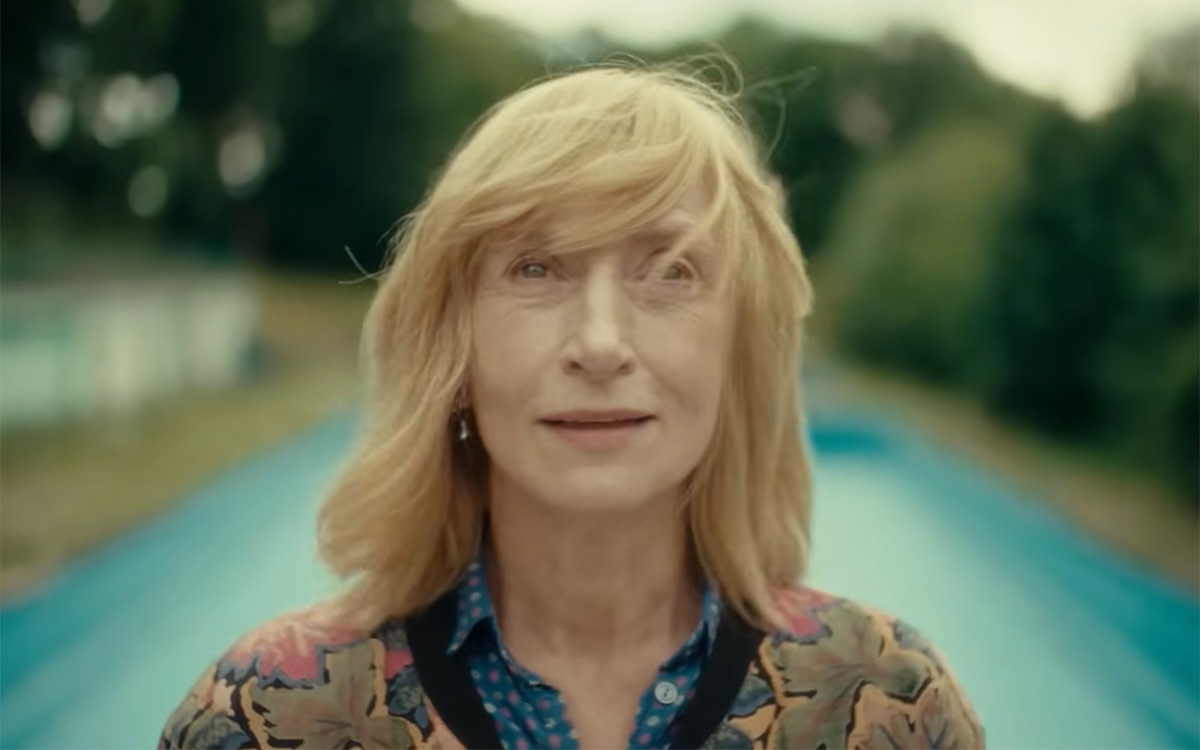
The Washington Polish Film Festival will screen “Kobieta Z” (English translation: “Woman Of”) on Saturday, May 11 at 8:45 p.m. at Landmark E Street Cinema, Theatre 6.
Having premiered at the Venice Film Festival, this Polish film breaks new ground. Starring Malgorzata Krzysztofik-Hajewska and Joanna Kulig, the movie is a sensitive and intelligent story of gender identity in a cruel world that cannot accept it and the personal love that ultimately does.
Tickets to the festival start at $20 and can be purchased on Eventbrite.

